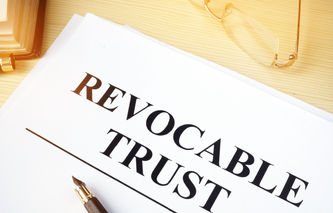Details Last Updated: Tuesday, 21 April 2020
While the activity of fraudulent offers and tax scam artists peaks around the April 15 filing deadline, vulnerable individuals are a constant target throughout the year. If offers of free stimulus and government subsidies sound too good to be true; maybe they're not.
Avoiding Tax Scams
In this article, we're going to discuss how to avoid tax scams; how to identify legitimate programs, and avoid illegal ones. The Internal Revenue Service (IRS) publishes a "Dirty Dozen" tax scams each year, which covers topics that range from identity theft through tax fraud.
What is a Tax Scam?
A tax scam can be a simple hoax used to extract money from a victim, or an intricate scheme that aims to intentionally defraud the federal government. Since these illegal activities use federal income taxes as the backdrop to attract the unwitting client, they are referred to as tax scams.
Avoiding a con artist takes both knowledge and willpower. Some individuals are overly attracted to the thought of "ripping off" the federal government, or stated more subtly, "underpaying" their fair share. But the IRS is pretty unforgiving, and ignorance is not always a successful defense in the court of law.
Categories of Activity
The list of tax scams appearing below leverages those published by the IRS, but we're going to separate these schemes into two categories: those aimed at taking money directly from a victim, and those aimed at taking money from the federal government. Either way, willing participants are on the losing end of each scheme.
Phishing Tax Scams
The term "phishing" is just another way of spelling "fishing." In this scam, the thief casts their phishing line with the bait on it. It looks like the message is coming from the IRS, but they are really phishing for information. This is an identity theft scam.
The bait usually involves a tax refund, or an audit that will result in riches being returned to the ultimate victim. The con artist will ask for several forms of identification, so the money can be deposited into the victim's bank account. Only in this scam money is removed from the account, not deposited.
Legitimate financial institutions, including the IRS, will have a policy against using emails to contact individuals and asking for this type of identification.
Tax Preparer Fraud
This next scheme involves dishonest tax return preparers that skim a portion of the victim's refund and charge inflated income tax preparation fees. They attract clients using offers of large refunds.
The IRS requires taxpayers to sign their returns, and they are held accountable for the accuracy of the document. The dishonest preparer walks away with a portion of the refund, and the victim winds up owing money to the IRS.
There are many large companies that have built their reputations on preparing accurate tax returns. These companies will offer the best mix of expertise and cost. They'll also offer protection in the form of accuracy "guarantees" too.
Zero Return, Zero Wages, No Gain
The aim of these next two schemes is to rip-off the federal government. This includes both the zero return and zero wages tax scams. In these two variations on the same theme, the taxpayer is encouraged to enter zero wages on their Form 1040 tax return or submit an amended return showing zero wages.
In the "no gain" variation, the user simply deducts their entire adjusted gross income using Schedule A. If someone has earned wages, there is no way to justify completing, signing, and submitting a tax return claiming there was no income.
Faulty Arguments and Tax Abatement
Con artists will also attempt to defraud the IRS using flawed arguments or interpretations of tax law or code. In these schemes, the taxpayer is asked to send in Form 843 (tax abatement), or claim that it's unconstitutional to pay income taxes.
It doesn't make a lot of sense for a federal agency or a politician to introduce such code or legislation; especially if the source of their budget or salary is collected through income taxes.
Trusts and Offshore Accounts
There are two common tax scams that involve assets. The first entails the use of a Trust. Promises of reduced income taxes, gift taxes, and the write-off of expenses involved with setting up the trust never legally materialize. The IRS has conducted more than 200 investigations into companies offering these types of trusts.
The final tax scam we're going to discuss involves transferring money into offshore bank accounts in the hope of avoiding paying U.S. income taxes. This can involve credit cards, wire transfers, trust accounts, leases, and life insurance, in addition to bank accounts.
This last example highlights perhaps the most obvious of illegal tax schemes. A general rule of thumb applies here: If someone uses the term "protecting income from taxes," what they really mean is "defrauding the federal government."
Reporting Tax Fraud Activity
Anyone that suspects they've been the victim of tax fraud can report the activity to the IRS using IRS Form 3949-A, Information Referral. A completed form needs to be mailed to:
Internal Revenue Service Fresno, CA 93888
Persons filing this report are not required to self-identify. However, the identity of the person filing the report can be kept confidential. Persons reporting tax fraud may also be entitled to a monetary reward.



